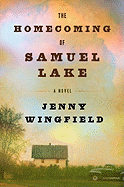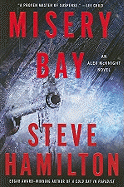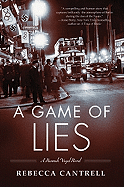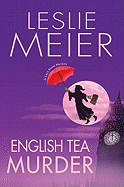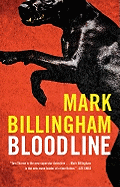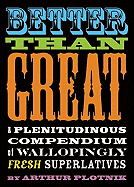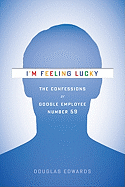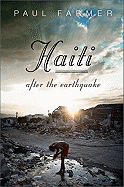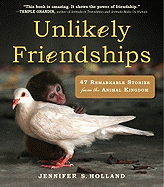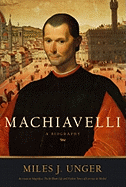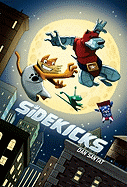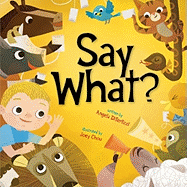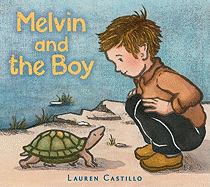 Joe and Terry Graedon have written more than 14 books, author a weekly syndicated newspaper column and host a radio show, but they still take their act and expertise out on the road when they can. That's how I was able to sit down with the lettered duo (Joe has a Ph.D. in pharmacology, Terry a doctorate in anthropological medicine) and chat about their latest title, The People's Pharmacy Quick and Handy Home Remedies: Q&As for Your Common Ailments (National Geographic Books, May 2011).
Joe and Terry Graedon have written more than 14 books, author a weekly syndicated newspaper column and host a radio show, but they still take their act and expertise out on the road when they can. That's how I was able to sit down with the lettered duo (Joe has a Ph.D. in pharmacology, Terry a doctorate in anthropological medicine) and chat about their latest title, The People's Pharmacy Quick and Handy Home Remedies: Q&As for Your Common Ailments (National Geographic Books, May 2011).
The Graedons may be doctors, but they're not medical doctors, and they're quite clear that no one should take any of the advice in their books as a reason to skip necessary visits to a physician. "Our philosophy is if it can't hurt and it might help and it's cheap, why not try it?" Terry said.
 By "can't hurt" they mean the ingredient or remedy has no other dangerous properties if used as suggested; "might help" means they've tested it themselves or had copious anecdotal feedback; and "cheap" means readily available to any of their readers of listeners. I asked the Graedons to come up with a list of the top 10 substances to stock in your summer cupboard, pantry and medicine chest to soothe a passel of seasonal ills.
By "can't hurt" they mean the ingredient or remedy has no other dangerous properties if used as suggested; "might help" means they've tested it themselves or had copious anecdotal feedback; and "cheap" means readily available to any of their readers of listeners. I asked the Graedons to come up with a list of the top 10 substances to stock in your summer cupboard, pantry and medicine chest to soothe a passel of seasonal ills.
Listerine: The popular mouthwash is recommended again and again to the Graedons and their listeners as a remedy for nail fungus. Joe says that it's the "inactives" in the rinse that do the trick, like eucalyptus oil. "The alcohol seems to make it easier for the antifungal ingredients to get into the nails."
Milk of Magnesia: For summer-strength B.O., the Graedons have a fix that's as cheap and easy as they come. "Just dab any kind of milk of magnesia under the arms and let it dry," says Terry. "It has no color or other odor, and it works as well as any deodorant. It's not an anti-perspirant, unfortunately."
Fresh onion: Joe says that a slice of onion seems to act as an anti-inflammatory for all manner of bug bites and stings. "Of course, meat tenderizer has the same results" he adds, "because of the papain. But if you haven't got any tenderizer handy, it's good to know about the onion effect."
Soy sauce: An army sergeant called in to say that after a training-accident burn, medics sprayed his hand with "a brown substance" before bandaging it. His hand healed very quickly, and when he asked what the medics had used, they said "Soy sauce. We learned that in Vietnam. Takes the pain away and heals it, too."
Yellow mustard: Depending on your pantry, you might choose to treat minor burns--"Not severe ones!" cautions Terry. "For those, go to the E.R."--with cold yellow mustard. Joe explains "We think it's the turmeric that does it. Researchers have discovered turmeric has remarkable regenerative properties."
Coconut macaroons: While there's no medical research to prove this, the Graedons believe that they've heard enough to suggest it: coconut in any form (originally Archway macaroons) seems to soothe severe digestive distress. "In 95 out of 100 cases, including people with Crohn's Disease, coconut stopped the diarrhea."
Castor oil: If you're still averse to this gloppy stuff because your grandmother "dosed" you with it, never fear: The Graedons just want to suggest you to try it to help get rid of minor surface bruise. "Just rub a bit of it on a knee or forearm," says Terry. "It really does the trick! But don't try swallowing it for that purpose."
Black pepper: Bruises often come with cuts and scrapes. The Graedons' surprising suggestion? Pour on the black pepper--lots of it, and very finely ground, preferably from a supermarket canister. Joe says it stops the bleeding, and that two other options are rubbed sage and cayenne pepper (it doesn't sting).
Pickle juice: Summer means sports, and sports often mean painful leg cramps. The Graedons pass on a time-honored tip from football coaches, who keep jars of pickle juice and offer a swig to any team member sidelined with calf pain. "This might be because of its fermented state," says Joe, "but we don't really know."
Vitamin C: Some people swear by megadoses of "C" for warding off sunburn. If you're not sure, try taking aspirin before a day at the beach. "But first, bring and apply your sunscreen!" says Terry. If, she says, you forget and wind up nursing a burn, apply lukewarm green tea to take the pain away.
 For the record, I read those thousands of pages, and thoroughly enjoyed each and every one. There are plenty other books about supernatural beings that leave me colder than Bellatrix Lestrange's heart, but that's okay; they might warm yours. I believe that that contrast is somewhat magical. --Bethanne Patrick
For the record, I read those thousands of pages, and thoroughly enjoyed each and every one. There are plenty other books about supernatural beings that leave me colder than Bellatrix Lestrange's heart, but that's okay; they might warm yours. I believe that that contrast is somewhat magical. --Bethanne Patrick


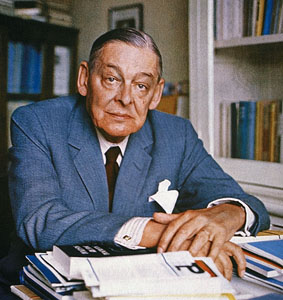 If you can hum "Lyin' in bed/ Just like Brian Wilson did..." think about substituting "Just like Truman Capote did" in those lyrics and you'll have an idea of what the fab folks at Flavorwire have dreamed up for
If you can hum "Lyin' in bed/ Just like Brian Wilson did..." think about substituting "Just like Truman Capote did" in those lyrics and you'll have an idea of what the fab folks at Flavorwire have dreamed up for  Joe and Terry Graedon have written more than 14 books, author a weekly syndicated newspaper column and host a radio show, but they still take their act and expertise out on the road when they can. That's how I was able to sit down with the lettered duo (Joe has a Ph.D. in pharmacology, Terry a doctorate in anthropological medicine) and chat about their latest title, The People's Pharmacy Quick and Handy Home Remedies: Q&As for Your Common Ailments (National Geographic Books, May 2011).
Joe and Terry Graedon have written more than 14 books, author a weekly syndicated newspaper column and host a radio show, but they still take their act and expertise out on the road when they can. That's how I was able to sit down with the lettered duo (Joe has a Ph.D. in pharmacology, Terry a doctorate in anthropological medicine) and chat about their latest title, The People's Pharmacy Quick and Handy Home Remedies: Q&As for Your Common Ailments (National Geographic Books, May 2011).  By "can't hurt" they mean the ingredient or remedy has no other dangerous properties if used as suggested; "might help" means they've tested it themselves or had copious anecdotal feedback; and "cheap" means readily available to any of their readers of listeners. I asked the Graedons to come up with a list of the top 10 substances to stock in your summer cupboard, pantry and medicine chest to soothe a passel of seasonal ills.
By "can't hurt" they mean the ingredient or remedy has no other dangerous properties if used as suggested; "might help" means they've tested it themselves or had copious anecdotal feedback; and "cheap" means readily available to any of their readers of listeners. I asked the Graedons to come up with a list of the top 10 substances to stock in your summer cupboard, pantry and medicine chest to soothe a passel of seasonal ills.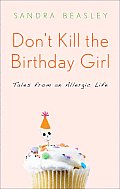 Don't Kill the Birthday Girl: Tales from an Allergic Life by Sandra Beasley (Crown, $23) is a memoir that mixes personal anecdote with research and analysis of food allergies to create a moving and meaningful book about what it means when the same food that makes everyone else happy is off limits to you.
Don't Kill the Birthday Girl: Tales from an Allergic Life by Sandra Beasley (Crown, $23) is a memoir that mixes personal anecdote with research and analysis of food allergies to create a moving and meaningful book about what it means when the same food that makes everyone else happy is off limits to you.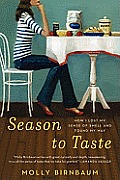 Personal anecdote and research: Read Season to Taste: How I Lost My Sense of Smell and Found My Way by Molly Birnbaum. Weeks before the author was due at the Culinary Institute of America, she was hit by a car and lost her sense of smell. Her journey back to olfactory normalcy is her journey back to normalcy in the rest of her life, too. Great sections explaining smells, the nose and their role in taste.
Personal anecdote and research: Read Season to Taste: How I Lost My Sense of Smell and Found My Way by Molly Birnbaum. Weeks before the author was due at the Culinary Institute of America, she was hit by a car and lost her sense of smell. Her journey back to olfactory normalcy is her journey back to normalcy in the rest of her life, too. Great sections explaining smells, the nose and their role in taste.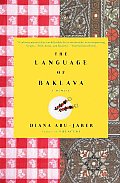 Memoir, but with recipes: Try The Language of Baklava by Diana Abu-Jaber, a book that combines luscious food with family dysfunction. Abu-Jaber's father, a Jordanian immigrant, never made peace with his new country, but was as happy as he could ever possibly be when making the dishes of his homeland.
Memoir, but with recipes: Try The Language of Baklava by Diana Abu-Jaber, a book that combines luscious food with family dysfunction. Abu-Jaber's father, a Jordanian immigrant, never made peace with his new country, but was as happy as he could ever possibly be when making the dishes of his homeland.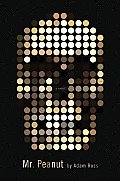 Fiction about food allergies: Run, don't walk, to read the disturbing yet brilliant Mr. Peanut by Adam Ross, in which a woman's severe food allergy is the catalyst for a sidewinding mystery and elegy for a marriage shattered by the very thing that should have held it together. A book you won't forget.
Fiction about food allergies: Run, don't walk, to read the disturbing yet brilliant Mr. Peanut by Adam Ross, in which a woman's severe food allergy is the catalyst for a sidewinding mystery and elegy for a marriage shattered by the very thing that should have held it together. A book you won't forget.
 If you're a really serious Harry Potter fan, this might be the ultimate piece of memorabilia for you--
If you're a really serious Harry Potter fan, this might be the ultimate piece of memorabilia for you-- It seems criminal to call Brazenhead Books illegal--but there it is. Owner Michael Seidenberg set up shop in his Upper East Side apartment after facing many different kinds of disappointment (including quadrupled rent) as an indepedent bookseller specializing in user and rare titles. Without a retail license, Seidenberg could face closure at any time, yet he perseveres.
It seems criminal to call Brazenhead Books illegal--but there it is. Owner Michael Seidenberg set up shop in his Upper East Side apartment after facing many different kinds of disappointment (including quadrupled rent) as an indepedent bookseller specializing in user and rare titles. Without a retail license, Seidenberg could face closure at any time, yet he perseveres. "First we had slow food, then slow writing and now, quite naturally it seems, we have slow bookselling," the
"First we had slow food, then slow writing and now, quite naturally it seems, we have slow bookselling," the 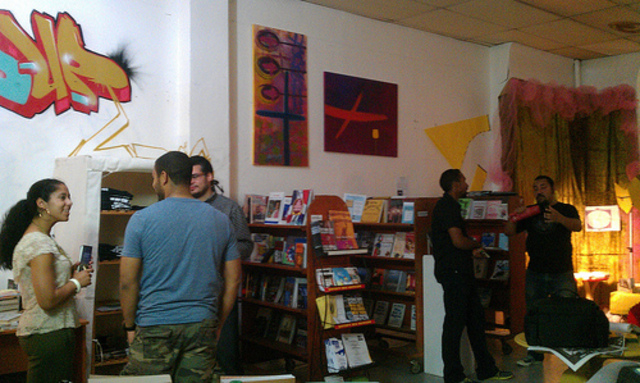 The "pop up" bookstore in Washington Heights was supposed to close on July 14, but due to lease leniency from their landlord, the proprietors will be able to keep the temporary structure in place through September.
The "pop up" bookstore in Washington Heights was supposed to close on July 14, but due to lease leniency from their landlord, the proprietors will be able to keep the temporary structure in place through September.  We love
We love 